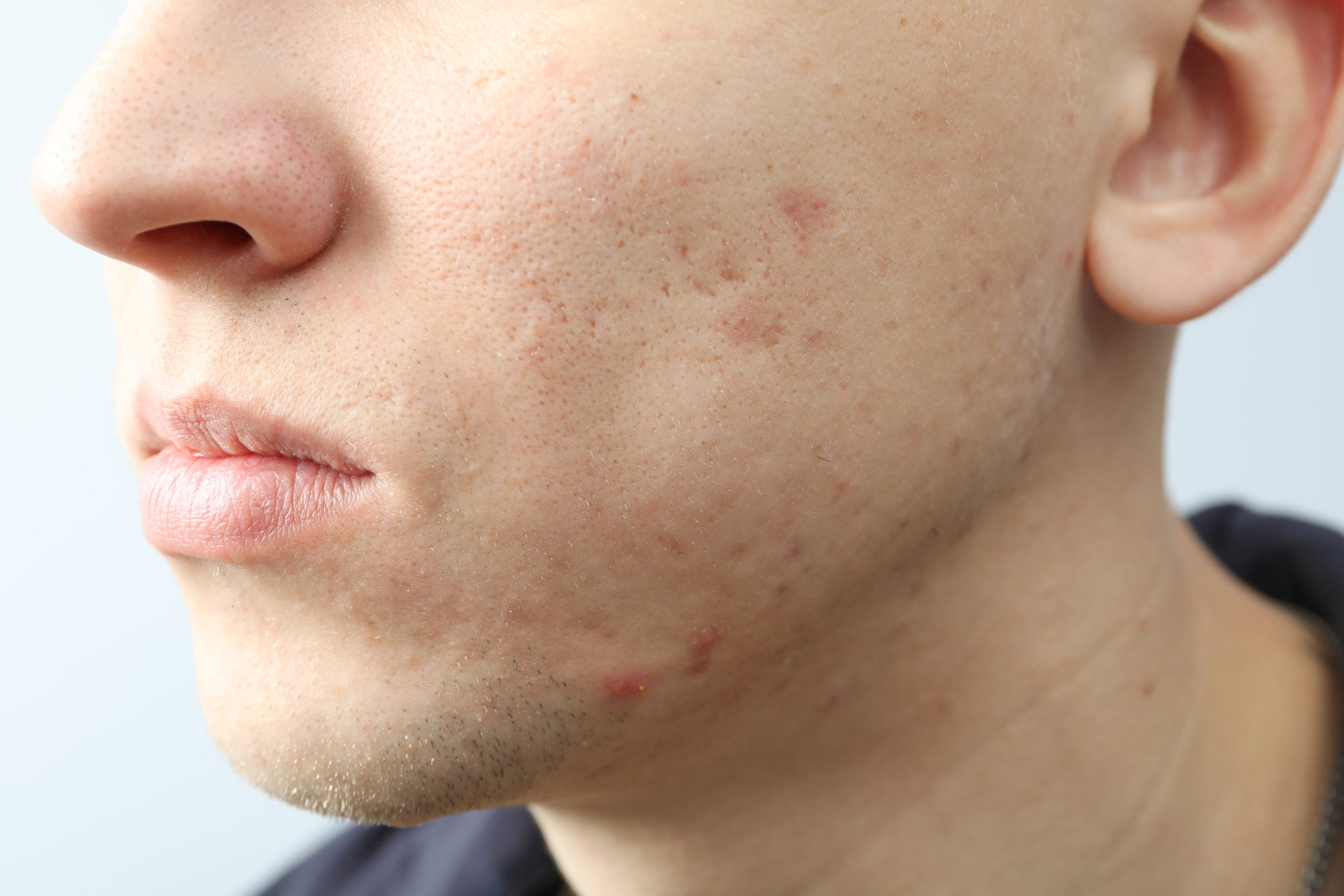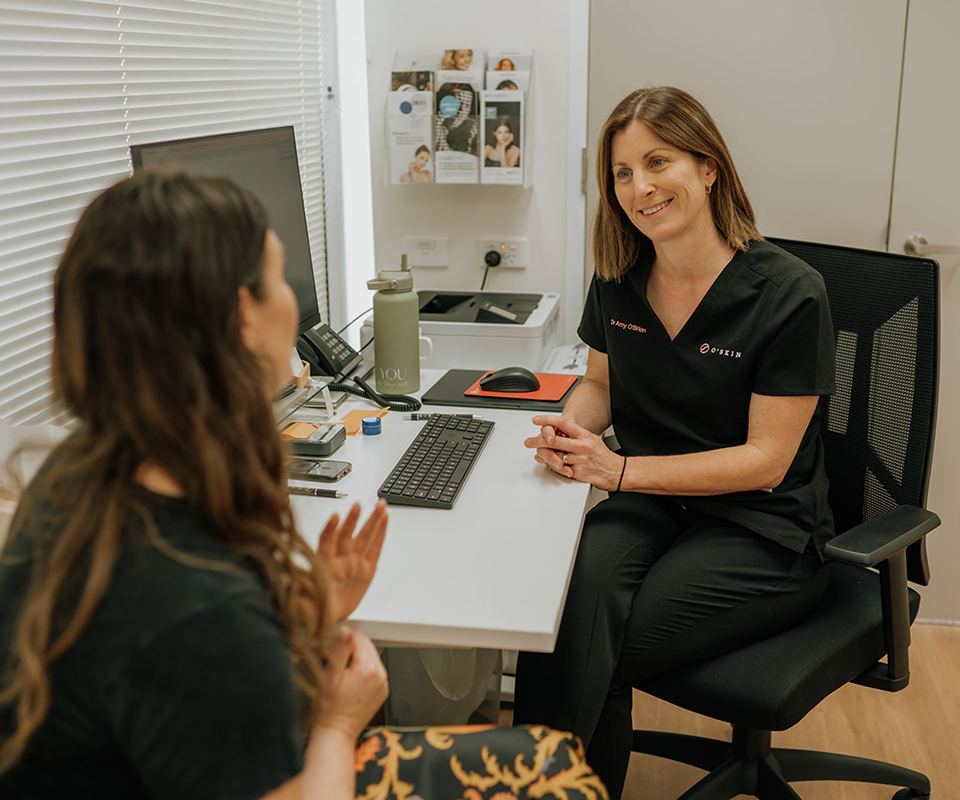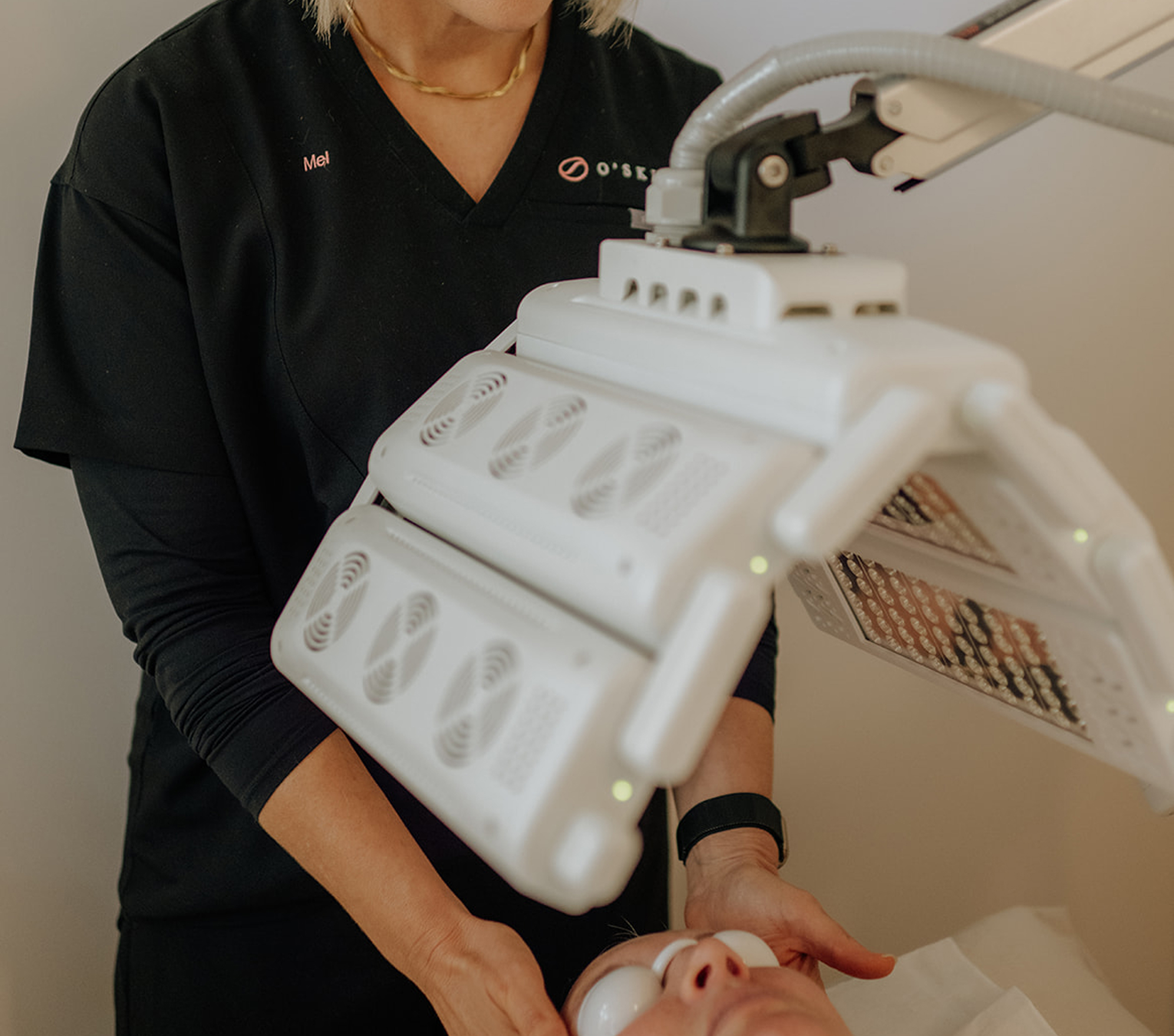Acne
Acne is a common skin condition characterised by the formation of pustules, blackheads, and cysts, primarily affecting areas with high sebaceous (oil) gland activity. Managing acne involves a comprehensive approach that includes understanding the condition, utilising appropriate skincare products, considering medications, and exploring in-clinic treatments.

Treatment Options
Skin Care
Proper skincare is essential in managing acne, best achieved with medical grade cosmeceuticals. This involves cleansing, exfoliation, moisturising and sun protection. Dead skin cells cause blockage or pores, allowing oil to collect and encouraging growth of bacteria that contribute to acne. Products such as salicylic acid and retinoids are useful in breaking down skin cell bonds and encouraging cellular turnover, prevention blockage of pores. Moisturising maintains a healthy skin barrier. Sun protection in the form of sunscreen prevents post-inflammatory hyperpigmentation and scarring.
Medications
Medications can be categorised into topical and oral treatments. Topical treatments are applied directly to the skin and include retinoids, antibiotics, and benzoyl peroxide. For moderate to severe cases, oral medication may be prescribed, such as antibiotics, hormonal therapies, and isotretinoin.
It’s important to note that while these treatments can be effective, they may require several weeks to show results and can have side effects.
In-Clinic Treatments
Professional treatments can complement at-home care and include chemical peels, laser therapy and LED light therapy. Chemical peels utilise acids to decongest the skin and prevent the formation of comedones. Non-ablative lasers are used for acne treatment and work to decrease inflammation and redness. LED light therapy employs certain wave lengths which kill acne-causing bacteria and reduce inflammation.
How it Works


Initial Consultation
A thorough evaluation is crucial. The consultation typically includes a review of underlying medical problems, medications, previous and acne management and skincare routines. We will examine your skin to determine acne severity and type and create a treatment plan that is suitable for your condition and budget.
Treatment
We offer multiple options for acne management as outlined above and including skin care, medications and in clinic treatments. An acne management plan is tailored to your needs in consultation with you. There are many opt in and opt out treatments but may include in clinic treatments such as chemical peels, laser or LED light therapy.
These treatments are all tolerable. Numbing cream is not usually required for laser for acne. Appointments are usually between 30 and 60 minutes in length. Your skin will feel hot and appear red following laser. You may feel a slight tingle after a chemical peel. Following any aftercare instructions is essential to protect your skin following any procedure.
Aftercare
Post-treatment care is vital for optimal results and to protect acne prone skin to prevent inflammation and scarring. Sun Protection is a must after any procedure and is advised daily for people who suffer from acne. A lotion, gel or physical sunscreen is usually best tolerated by people who suffer from acne. A moisturiser (non
comedogenic) is important for hydration and to maintain the skin barrier. Steer clear of harsh products that can disrupt the skin barrier until the skin has settled.
Regular follow-ups ensure the treatment plan remains effective and adjustments are made as needed.